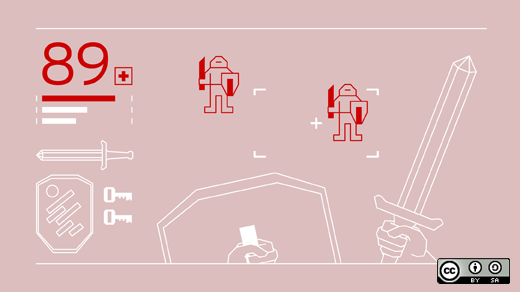I'm excited. I mean really excited. Excited to the point that I can hardly think. I'm talking six-year-old trying to go to sleep on Christmas Eve excited. But before I get to why, let's take a trip back to 1999.
It was in that year that Loki Software released their first port of a major commercial game (Civilization: Call to Power) to Linux. Shortly thereafter, Loki published another 18 ports of blockbuster titles for Linux. For a brief moment, one of the last major hurdles for real Linux adoption had been solved--gaming. Then, in 2001, Loki Software filed for bankruptcy and promptly closed its doors.
This proved to be enough fodder for Microsoft to use in order to really push DirectX, and particularly their flagship Direct3D, over the edge as the de facto API for which almost all games going forth would be based on. In doing this, Microsoft was able to secure a decade-long lock on computer gaming. I mean, after all, who would want to invest time and money into porting games over to a platform that ultimately failed to prove viable? It's pretty easy to state that when you cannot make a successful model with Bungie, iD, Sid Meier, and Epic backing you, then likely the platform you are supporting just isn't ready for gaming. This is largely where Linux stood in 2001.
Yet to much fanfare, iD Software (literal pioneers in the freeware industry) released Linux ports of Doom 3 and Quake 4 in the mid-2000s. Many titles, such as Unreal Tournament 2004, still had their Linux ports. Some of the ports were even done by former Loki programmers such as Icculus. But those became fewer and farther between. They were simply tiny blips on the commercial gaming timeline. Linux users had even begun to grow used to false hope. For example, Epic Games released Unreal Tournament 3 in 2007 with the promise that, eventually, a Linux installer would be released. It's now mid-2010 and the installer has yet to surface. Earlier this year, Sony even removed the ability to install alternative operating systems on the Playstation 3--much to the chagrin of free software fans the world over. Things simply were not looking good for gaming in Linux, let alone other free operating systems.
All the while, there have been plenty of good, fully open source titles released to the community. Yet attempting to convince a die-hard World of Warcraft junkie to switch to open source and begin using free online RPGs is going to be tough. Even if you can convince him to try Wine and run World of Warcraft in Linux, they will likely be turned off by the instabilities and performance drops experienced with this solution.
So with all this doom and gloom that I am writing about, why am I so excited? Over the past three days, I have read the following headlines online:
Number 1: Android is now the number two smartphone OS in the US. Unless you've been under a rock, you've probably read that the mobile gaming market is booming. Don't forget that RIM's Blackberry OS (the current number one smartphone OS) is designed around business and that it is quickly losing steam to Android. And if you consider that Android is a Linux distribution, well, you can connect the dots.
Number 2: Steam, the popular online game delivery service, is definitely coming to Linux. It could even be here by the end of August. And what good is a game delivery service that can't deliver games to the platform it supports? (Hint--it sucks) So this essentially states that much like the recent announcement of the Source engine (Half-Life 2, Team Fortress 2) making its way to OSX via their shiny new OSX Steam client, Linux should receive the same love.
Now I realize there are some problems with these headlines. While the foundation is open source, the games running on Android are generally not open. The same goes for Steam and most of the games Steam delivers. Which brings me to the third and most incredible headline:
Number 3: The Humble Indie Bundle (THIB) hit the one-million USD mark (as of 5/11, $1,205,772). For those who are unaware of this little project, several indie game developers decided to package their games together with no digital rights management (DRM) and a pay-what-you-want business model. In other words, they implemented a merit-driven payment system that actually trusted the users (read: owners) of the games. Included in this pack are the highly acclaimed Penumbra and World of Goo titles (which, if you recall, had a very successful Linux release). To further emphasize how amazing this 1.2 million dollar mark is, the sale only lasted one week. Because this bundle is designed for Windows, OSX and Linux, Linux users were a part of this audience.
But what exactly does this have to do with open source as the games themselves are still closed? *Drumroll please* Because of the overwhelming support of this project, four games from THIB are being open sourced. In fact one of the games from THIB, Lugaru, is now open source. (Interestingly enough, Icculus is behind the released code base)
I started getting into open source in the Fall of 2001, installing my first Linux distribution my first semester of college. This is literally months after Loki Software shut their doors. I have spent a decade pining for better support for the operating system I love and the movement behind this operating system. Can you tell why I'm excited?
We're about to tackle one of the last barriers in truly making Linux, and subsequently other free operating systems, a real option in everyone's homes for everything they do on their personal computer. We cannot let the same thing that happened in 2001 happen in 2010. Support these companies however you can. Donate cash, or code, or simply promote their wares. The commercial games industry is one of the largest industries in the history of the world. These developers are taking a risk by attempting to put to rest the last vestiges of FUD from the closed source camps. Let's show them that there is a Linux base that is begging for triple-A titles. We no longer want to dual-boot to Windows, and we no longer want to emulate. We want the real deal--native support for Linux in commercial games. This is why I have trouble sleeping. We're on the verge of something big here--even bigger than the industries involved--and you have a chance to make yourself heard. Don't let this chance fade.
I know these are far from the only headlines out there dealing with open operating systems and commercial gaming. If you're aware of similar projects, leave a message! We'd love to hear from you.







14 Comments